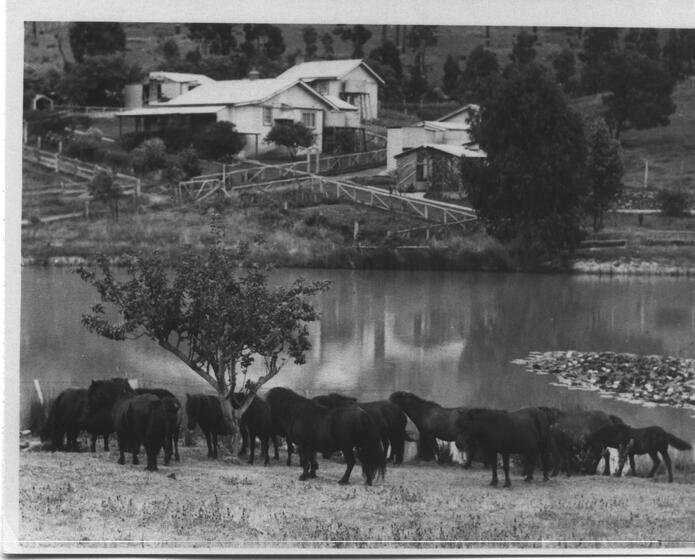Speed, Style, Spirit: The Rob Roy Hillclimb
"We have at last discovered a venue for a hillclimb par excellence. I cannot tell you about it in this issue but .... This I can promise you; that when the news is released, hillclimb enthusiasts will set to work on their cars with great zest".
The Car, October issue, 1935
In 1935, members of the Light Car Club of Australia inspected a property in Christmas Hills, some thirty kilometres north-east of Melbourne, known as Clinton's Pleasure Grounds, a picnicking venue which included the Rob Roy Shetland Pony Stud, a swimming hole, tennis courts, a cricket and football field, tea room and dance hall.
Their mission was to establish a Hillclimbing venue. Hillclimbing, a speed event in which drivers compete, one at a time, on an uphill course against the clock, is one of motorsport’s oldest events; the first was held at La Turbie near Nice, France, in 1897.
Opening on February 1, 1937, the Rob Roy Hillclimb was the first purpose-built Hillclimb in Australia. Cut out of the bush, it included an uphill half-mile, graded dirt road, a judges box and telephone boxes at the start and finish. In 1939, the track was sealed and became one of only three bitumen-surfaced purpose-built hillclimbs in the world, the other two being the Shelsley Walsh and Prescott courses in the UK.
The Rob Roy Hillclimb has a special place in Australia’s motoring history, with eight record holders going on to become Australian Grand Prix winners and one – Jack Brabham – a triple F1 World Champion. The roll call of other drivers who displayed their skills at the Rob Roy includes Harry Firth, Stan Jones, Lex Davison, Bill Patterson, Doug Whiteford, Peter Whitehead, Reg Hunt, Diana Davison Gaze, Tony Gaze and Len Lukey.
The Rob Roy Hillclimb was more than a racing event, it was a culture. Connected to Formula One racing, celebrities, champion drivers, patrons, collectors, and prestige and iconic cars, the Rob Roy had an aura of glamour, and club meets were social occasions, with drivers adhering to collar and tie dress codes and picnickers fashionably attired.
Nevertheless the cars were central. Over the years Bugattis, Jaguars, MGs, Falkenbergs, Oldses and Altas have competed with Australian makes such as Holdens, Fords and Elfins, from road cars to specialist cars. Many Australian cars started or developed their racing history at Rob Roy, including the Chamberlain, Maybach, BWA, Wyliecar, Klienig Special, the Walton JAP, and numerous other Australian Specials.
The Specials were modified and home-built cars. Hillclimbs make particular demands – lightweight cars with loads of torque are ideal – and so engines were upgraded, bodies stripped, cars were made up of the most suitable parts or whatever one had access to. The Specials were evidence of the culture of creativity and passion that surrounded the Hillclimb. Many cars, some pre-war, and modified constantly over time, have passed from driver to driver along with their history, to compete to this day.
In 1962, bushfires ravaged the Rob Roy, and it lay unused for another 30 years until the MG Car Club of Victoria secured a lease on the property and faithfully restored the track to host a bustling schedule of Hillclimb events. Since 1993, the Rob Roy Hillclimb culture – the drivers, the cars, the inventive mechanics and the enthralled daytrippers – thrives in the Christmas Hills.
Sources: Leon Sims, A history of Rob Roy Hillclimb - 1937 to 1961 - The Hill, The Drivers, The Cars. And, the MG Car Club of Victoria





















